#T.S.Eliot
Text

Photo:: T.S.Eliot
* * * *
Home is where one starts from. As we grow older
The world becomes stranger, the pattern more complicated
Of dead and living. Not the intense moment
Isolated, with no before and after,
But a lifetime burning in every moment
And not the lifetime of one man only
But of old stones that cannot be deciphered.
There is a time for the evening under starlight,
A time for the evening under lamplight
(The evening with the photograph album).
Love is most nearly itself
When here and now cease to matter.
Old men ought to be explorers
Here or there does not matter
We must be still and still moving
Into another intensity
For a further union, a deeper communion
Through the dark cold and the empty desolation,
The wave cry, the wind cry, the vast waters
Of the petrel and the porpoise. In my end is my beginning.
T S Eliot
(Center of Applied Jungian Studies)
#poem#poetry#words and writing#my favorites#T.S.Eliot#home#Center of Applied Jungian Studies#reading and writing
58 notes
·
View notes
Text
"The experience of a poem is the experience both of a moment and of a lifetime".
T.S.Eliot: a fragment from "Dante".
https://tseliot.com/prose/dante
22 notes
·
View notes
Text

8 notes
·
View notes
Text
Dialogue: Cuvelier ~ Eliot ~ Rossi ~ Cioran ~ 1860s - 1920s - 1940s
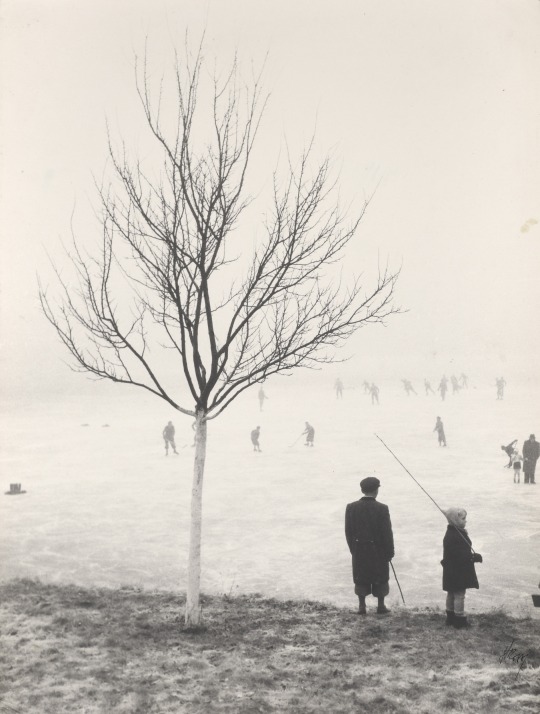
Adolf Rossi :: On a frozen lake, 1946. Vintage gelatin silver print | Sign. Adolf Rossi a Easter Cape International Salon of Photography. 6th C. P. A. International Salon 1965, Hong Kong | src Prague Auctions

Eugène Cuvelier :: Près de la Caverne, Terrain Brûlé, early 1860s. Salted paper print from paper negative. | src The Met
“An atypical work for the naturalistically inclined Cuvelier, this highly Romantic image of two people sitting below the skeletons of burned pine trees and looking into the featureless distance like (...)
view & read more on wordPress
“Winter kept us warm, covering
Earth in forgetful snow”
― T.S. Eliot, The Waste Land (1922)
“Life is merely a fracas on an unmapped terrain, and the universe a geometry stricken with epilepsy”
― Emil Cioran, A Short History of Decay (1949)
related post on wordPress or on tumblr
#eugene cuvelier#adolf rossi#t.s.eliot#burned trees#emil cioran#burnt ground#charred land#charred landscape#frozen lake#mood#naturalism#pres de la caverne#quotation#quotes#terrain brule#vue de dos#view from behind#von hinten gesehen#vista posterior#Rückseite#1940s#back to camera#1860s#the waste land#waste land#decay#solitude
59 notes
·
View notes
Quote
her şey alt üst olduğunda hatırla... ( bozgun ) öleceksin.
t.s elliot - çorak ülke
#T.S.Eliot#çorak ülke#selected poems#seçilmiş şiirler#konstantin kavafis#constantine cavafy#ithaka#ithaki#poems#poetika#şiir#şiir blog#Rainer Maria Rilke#duino ağıtları#malte laurids brigge'nin notları#Hermann Hesse#genç werther'in acıları#Johann Wolfgang von Goethe#faust#doctor faustus#kitap#kitap blog#kitap kurdu#ahmet hamdi tanpınar#huzur#charles bukowski#albert camus#sisifos söyleni#oğuz atay#tutunamayanlar
15 notes
·
View notes
Text
Ezra Pound the best craftsman


Ezra Pound the best craftsman
Ezra Pound the best craftsman as Eliot called him, an article that synthetically explains the linguistic art and poetics of this great poet, with some examples of his writing style and deep literary meaning.
I have never known anyone worth a damn who wasn't irascible.
Ezra Pound
I guess the definition of a lunatic is a man surrounded by them.
Ezra Pound
A slave is one who waits for someone to come and free him.
Ezra Pound
The real trouble with war (modern war) is that it gives no one a chance to kill the right people.
Ezra Pound
I could I trust starve like a gentleman. It's listed as part of the poetic training, you know.
Ezra Pound
No man understands a deep book until he has seen and lived at least part of its contents.
Ezra Pound
For Ezra Pound il miglior fabbro.
The dedication is drawn from The Divine Comedy, the 14th century epic poem by Dante. The Divine Comedy is divided into three parts - Inferno, Purgatorio, and Paradiso - describing Dante's journey through Hell, Purgatory, and finally Paradise. Eliot returns to this poem throughout The Waste Land.
Here, the dedication translates as “the better craftsman,” a reference to Canto 26 of the Purgatorio. Dante refers to the poet Arnault Daniel, but Eliot passes the compliment on to Pound, who helped edit The Waste Land. Eliot returns to the same canto in line 428.
More context, from the Cotter translation of the Purgatorio:
“O brother, the one I point to with my finger,”
He spoke, and pointed to a soul in front,
“Was a better craftsman of the mother tongue.”
This information is based on a footnote from North (2001). For more on Pound's contributions, see the annotated manuscript of The Waste Land in Eliot (1971).
Ezra Weston Loomis Pound was an American expatriate poet, critic and intellectual who was a major figure of the Modernist movement in early-to-mid 20th century poetry. Born in Halley, Idaho, (1885-1972) Pound spent most of his life in Europe. In 1908, in his mid-twenties, he went to London because he wanted to meet the greatest living poet, W.B. Yeats, settled there and became a central figure in the literary and artistic world. He founded and led a poetic movement called "Imagism", which reacted against 'Romanticism' and contributed greatly to the development of "Modernism".
For some time he was also involved in "Vorticism", an art movement initiated in 1913 by Wyndham Lewis, which combined cubism and the celebration of the energy and speed of the machine age, very much like Futurism in Italy. In 1909 he published Personae, a collection of poems after the manner of the Victorian poet Robert Browning, whose dramatic monologue technique he employed to speak through the voice of others.
A "persona" was the mask worn by Roman actors, and Pound used the mask to avoid subjectivity, which the imagists objected to in Romantic poetry. Gradually, Pound started moving away from the constraints of Imagism, and translated from Anglo Saxon and Chinese verse to explore different forms. In 1917 he also started writing the Cantos, a series of poems inspired by Dante's Divine Comedy and Homer's Odyssey, which he would work on for the rest of his life, while Hugh Selwyn Mauberley (1920) perhaps the first great modernist poem, attacks the destruction of the First World War and initiates one of Pound's main themes: the relationship between civilization and its economic and social basis.
From 1920 he lived in Paris with his wife and became part of the new literary scene with expatriate Americans like Gertrude Stein and Ernest Hemingway. In Paris he also met James Joyce, then an obscure writer, and helped him publish Ulysses, which had censorship problems in England.

The art of Ezra Pound
In 1929 Pound settled in Rapallo, Italy. He became increasingly concerned with the decline of Western civilization and with the social basis of art in what he believed to be a degenerate economic system. He studied the history of Italian Medieval and Renaissance states and found that Italy had in the past created the ideal conditions for the flowering of great art, while he associated modern credit capitalism with the social and spiritual decline of the present. Unfortunately, Pound's dislike of capitalism led him to Fascism and to Mussolini, who was himself anti-capitalist and who persecuted the Jews, associated with money-lending since the Middle Ages.
During the Second World War he made a series of propagandist broadcasts over Radio Rome for which he was later tried in the United States, and confined for 12 years in a hospital for the insane. When he was released, he returned to Italy and died in Venice in 1972.
With the Imagist movement, Americans poetry became international, and its leaders, the American Ezra Pound and T.S. Eliot, also became the leaders of European poetry. Imagism as such had a short life-span. But it was to become the most influential poetic movement of the century, just as Pound is now considered one of the most influential Modernist poets. Pound was also a generous encourager of other poets and writers; he edited The Waste Land and published Joyce's Ulysses. Through his translations and essays he made known to English-speaking readers Provencal poetry, the Italian poets of the Stil novo, Japanese dramatic literature and Chinese classical poetry. Finally, his critical essays con-tributed to the definition of 'Modernism' as a movement and introduced new standards of objectivity in the evaluation of literature.
The Modern Age Cantos Imagism
When Pound went to London he made common cause with a small group led by the philosopher T.H. Hume. They called themselves imagists and announced a new kind of poetry, which Pound summarized in a Manifesto: 1) To use the language of common speech, but to em-ploy also the exact word, not the merely decorative word. 2) To create new rhythms - as the expression of new moods. We do not insist on 'free verse' as the only method of writing poetry... We do believe that the in-dividuality of a poem may often be better expressed in free verse than in conventional forms. 3) To allow absolute freedom in the choice of subject. 4) To present an image (hence the name 'Imagist'). We are not a school of painters, but we believe that poetry should render particulars exactly and not deal in vague generalities, however magnificent and sonorous. 5) To produce poetry that is hard and clear, never blurred or indefinite. 6. Finally, most of us believe that concentration is the very essence of poetry.
A multicultural collection of poems
The following poem by Pound has become famous as an example of the principles declared in the Manifesto. The poem describes a moment of intense emotion at seeing beautiful faces in a station of the Paris underground. The images condense the emotion in two parallel pictures with great economy of words, and using the language of common speech:
In a Station of the Metro
The apparition of these faces in the crowd;
Petals on a wet, black bough.
From "Poems of Lustra", 1913
In 1914 Pound abandoned the movement. Imagism was only a step on the way to Modernism, because images alone offered too limited possibilities for poetry. But its insistence on economy and free-verse continued to be valuable. Starting in 1917, Pound worked on the Cantos for the rest of his life. The Cantos, 140 loosely connected poems, have their source in Dante's Divine Comedy, as their name declares, and on the Odyssey, a model for Pound's exploration of contemporary civilization. Some of Dante's persons, like Brunetto Latini, figure in them, while many episodes have the Odyssey as a starting point.
Pound shows a vivid awareness of the past. Like most great modernists (Yeats and Eliot), he looked into the past for useful literary material, for principles of conduct and for comparison with the present. As a result the Cantos are a multi-cultural work: besides the references to Dante and the Odyssey, there are also references to the Old Testament, Rimini in the 15th century under Sigismondo Malatesta, whom he considered the ideal, benevolent despot, Confucius, the United States at the time of Jefferson, Medieval England and Provence, to mention but a few.
One of the main preoccupations expressed in the Cantos is economic. Pound believed that usury was at the basis of contemporary credit capitalism, which he considered the source of cultural and social disintegration. The usurer, be it an individual money-lender or a bank, charges interest, and interest, which is not worked for, creates false values, not just in economics, but also in life and art. The groups of cantos concerned with usury were written in the 1930s, when Pound was in Rapallo.
In Canto XI of the Inferno, Dante asks Virgilio why usury is considered one of the most serious crimes against nature. Virgilio answers that nature takes its origin directly from God's mind and art (doings). Humanity imitates nature and art (work), like a schoolboy imitating his master. But usurers despise nature and art and refuse to live by the fruits of nature and of work. They live by the rates of interest that come from money-lending:
"Filosofia, mi disse, a chi la' ntende nota, non pure in una sola parte, come natura to suo corso prende dal divino intelletto e da sua arte; e se tu ben la tua Fisica note, tu troverai, non dopo molte carte, che l'arte vostra quella, quanto pote, segue, come'l maestro fa'l discente; si che vostr'arte a Dio quasi e nipote. Da queste due se tu ti rechi a mente to Genesi dal principio, convene prender sua vita e avanzar la gente; e perche l'usuriere altra via tene, per se natura e per la sua seguace, dispregia, poi ch'in altro pon la speme."
Philosophy, he (Virgil) told me, for those who understand it, explains in more than one place, that Nature takes its origin directly from God's Mind and from his Art (doings); and if you read Aristotles's Physics, you'll soon discover that your (human) art imitates Nature as it can, like a schoolboy his master. So that your art can be called God's grandchild. From these two (Art and Nature) if you remember the beginning of Genesis, man should get his bread and promote prosperity to all. But the usurer chooses another way; he despises Nature and Art because he places his hopes elsewhere.
With usura Canto XLV
With usura hath no man a house of good stone
each block cut smooth and well fitting
that design might cover their face,
with usura
hath no man a painted paradise on his church wall
harpes et luz
or where virgin receiveth message
and halo projects from incision,
with usura
seeth no man Gonzaga his heirs and his concubines
no picture is made to endure nor to live with
but it is made to sell and sell quickly
with usura, sin against nature,
is thy bread ever more of stale rags
is thy bread dry as paper,
with no mountain wheat, no strong flour
with usura the line grows thick
with usura is no clear demarcation
and no man can find site for his dwelling.
Stonecutter is kept from his stone
weaver is kept from his loom
WITH USURA
wool comes not to market
sheep bringeth no gain with usura
Usura is a murrain, usura
blunteth the needle in the maid’s hand
and stoppeth the spinner’s cunning. Pietro Lombardo
came not by usura
Duccio came not by usura
nor Pier della Francesca; Zuan Bellin’ not by usura
nor was ‘La Calunnia’ painted.
Came not by usura Angelico; came not Ambrogio Praedis,
Came no church of cut stone signed: Adamo me fecit.
Not by usura St. Trophime
Not by usura Saint Hilaire,
Usura rusteth the chisel
It rusteth the craft and the craftsman
It gnaweth the thread in the loom
None learneth to weave gold in her pattern;
Azure hath a canker by usura; cramoisi is unbroidered
Emerald findeth no Memling
Usura slayeth the child in the womb
It stayeth the young man’s courting
It hath brought palsey to bed, lyeth
between the young bride and her bridegroom
CONTRA NATURAM
They have brought whores for Eleusis
Corpses are set to banquet
at behest of usura.
N.B. Usury: A charge for the use of purchasing power, levied without regard to production; often without regard to the possibilities of production. (Hence the failure of the Medici bank.)
Pound's The Cantos contains music and bears a title that could be translated as The Songs - although it never is. Pound's ear was tuned to the motz et sons of troubadour poetry where, as musicologist John Stevens has noted, "melody and poem existed in a state of the closest symbiosis, obeying the same laws and striving in their different media for the same sound-ideal - armonia."
In his essays, Pound wrote of rhythm as "the hardest quality of a man's style to counterfeit." He challenged young poets to train their ear with translation work to learn how the choice of words and the movement of the words combined. But having translated texts from 10 different languages into English, Pound found that translation did not always serve the poetry: "The grand bogies for young men who want really to learn strophe writing are Catullus and François Villon. I personally have been reduced to setting them to music as I cannot translate them." While he habitually wrote out verse rhythms as musical lines, Pound did not set his own poetry to music.
You can also read:
Ezra Pound quotes and aphorisms
Ezra Pound thoughts and reflections
T.S. Eliot quotes and aphorisms
T.S. Eliot thoughts and reflections
Quotes by authors
Quotes by arguments
Essays with quotes
Thoughts and reflections
News and events
Read the full article
0 notes
Text
“April is the cruelest month,
breeding lilacs out of the dead land,
mixing memory and desire,
stirring dull roots with spring rain.”
| T.S. Eliot |, The Waste Land
#brownsugar4hersoul#soul candy#sugar for the soul#eye candy#soul food#ear candy#spilled ink#t.s. eliot#ts eliot#t s eliot#tseliot#t.s.eliot#the waste land#book quotes#april#april 2024#april 24#month of april#cruelest month#breeding lilacs#out of the dead land#mixing memory#mixing desire#stirring dull roots#spring rain#spring showers#april showers#april shower#dull roots#memory
1 note
·
View note
Photo
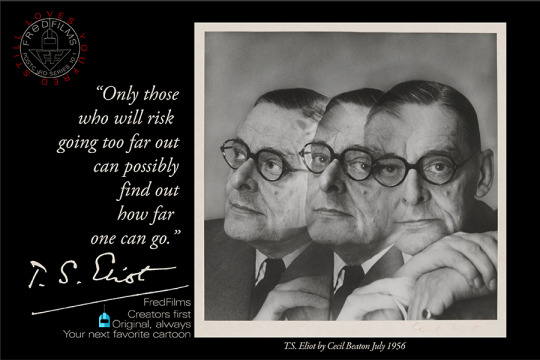
“Only those who will risk...”
FredFilms Postcard Series 10.1
Over the years, like many others, I’ve been influenced by all kinds of artists, and in their words I often found keys to my own efforts. After my screw up with the FredFilms Great Artist Series of postcards I still wanted to highlight non-animation/film artists across the spectrum.
Not much of a poetry fan, it was actually the Cecil Beaton photograph of the famous, sometimes controversial writer T.S. Elliot that stopped me in my tracks. But, it was his observation of artistic risk that really got me to kick off the FredFilms Quotation series.
.....
From the postcard back:
Congratulations!
You are one of 125 people
to receive this limited edition
FredFilms postcard!
www.fredfilms.com
Original, Always
Your next favorite cartoon
Creators first
FredFilms Quotations
“Only those who will risk
going too far out can possibly
find out how far one can go.”
T.S. Elliot, author and poet
Series 10.1 [mailed out March 17, 2024]
Photographed by Cecil Beaton
Vintage bromide print on white card mount, July 1956 9 3/8 in. x 9 5/8 in. (239 mm x 243 mm) Given by Cecil Beaton, 1972
UK National Portrait Gallery Primary Collection NPG P869(12)
#FredFilms postcards#Series 10#T.S.Eliot#poetry#postcards#photography#Cecil Beaton#postcard#FredFilms Quotations
1 note
·
View note
Text
Março | cartas à T.S.Eliot…
Hoje, no blogue, três cartas escritas por Mariana Gouveia, Lunna Guedes e Obdulio Nuñes Ortega ao poeta inglês T.S.Eliot...
Boa leitura
Carta para Eliot em tempos de quarentena
Clique aqui para ler
Eliot – dois países, uma língua-pátria
Clique aqui para ler
* zero hora. pelas pontas da rua
Clique aqui para ler

View On WordPress
0 notes
Text
Het hoekje van Opa Adhemar (113)
Aangezien Marc De decker aka Johan de Belie aka Opa Adhemar al enkele dagen overleden is, verwacht u zich natuurlijk niet meer aan een nieuw “hoekje”. Maar dankzij de medewerking van zijn kinderen kan ik er u alsnog één presenteren. Hopelijk zullen er nog volgen in de toekomst… Deze bijdrage heeft als titel “De Vuurtoren (Trinity Lighthouse)”.
Continue reading Untitled

View On WordPress
0 notes
Text
Settings in Literature as Edward Hopper Paintings
Edward Hopper is a famous American painter. He used to paint simple urban and rural settings that evoked a sense of simple quiet and aloneness. What would it look like if he painted some of these characters from our favorite authors’ setting descriptions?
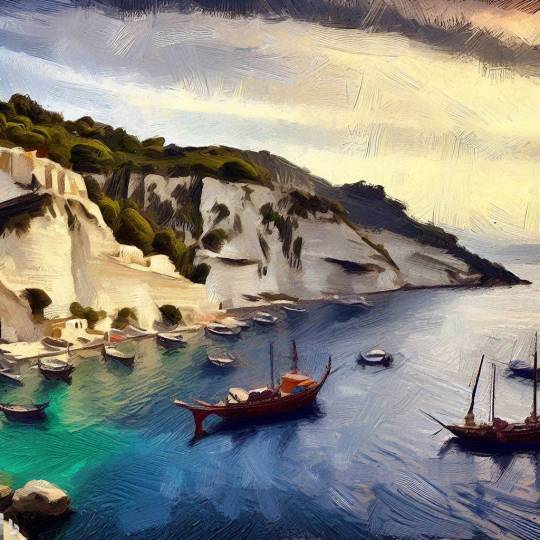
View On WordPress
#AIImages#alexandredumas#Artificialintelligence#Bing#Edwardhopper#gregortheoverlander#harrypotter#homer#isakdinesen#J.K.Rowling#J.R.R.Tolkien#lesmiserables#Literature#outofafrica#paintings#robertjordan#settings#stephenking#Suzannecollins#T.s.eliot#thecountofmontecristo#theeyeoftheworld#thehobbit#theodyssey#thewasteland#thshining#victorhugo
0 notes
Text
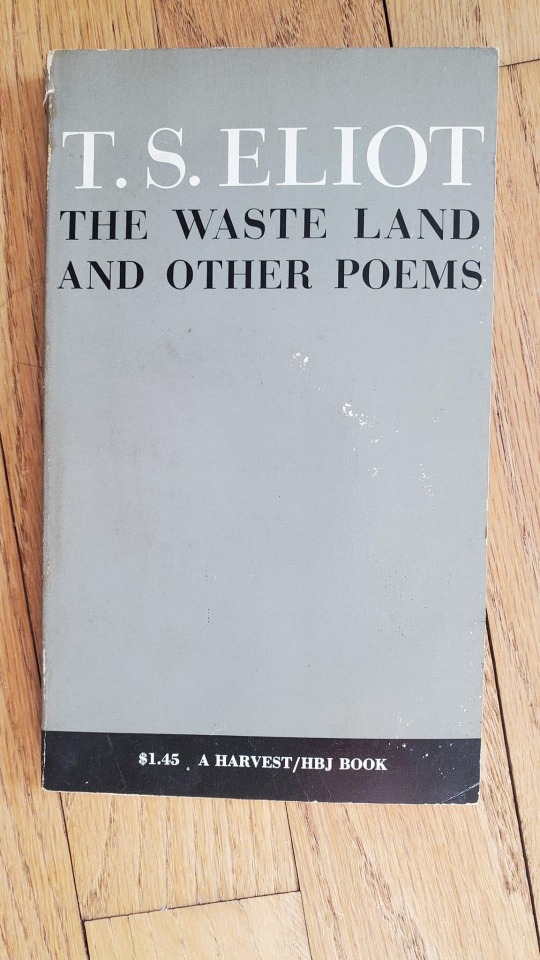
Tell me why again that April is the cruellest month? Who is Marie? And what’s up with the shadow under this red rock? It doesn’t sound good. Nor do I feel all that tempted to hang out in rat’s alley, where the dead men lost their bones. Or gaze at the one-eyed merchant. Although a summer’s shower, coming over the Starnbergersee, followed by coffee and an hour’s talk, does sound pretty good. I'm down w Sweet Thames, run softly till I end my song, but meanwhile, uh-oh, London Bridge is falling down falling down falling down. *Where does it all come from? Is this where Bob Dylan pilfered his material? The poet tells us: “Not only the title, but the plan and good deal of the incidental symbolism of the poem were suggested by Miss Jessie L. Weston’s book on the Grail legend: From Ritual to Romance." Happy Spring?
(Paul Starobin)
#Paul Starobin#Jessie L. Weston#Grail Legend : From Ritual to Romance#spring#April is the cruelest month#The Waste Land#T.S.Eliot
9 notes
·
View notes
Photo

april. the cruelest month.
1 note
·
View note
Text
Poems of the aftermath
It is March and there is a large number of deaths.
The dead people are being buried,
after a long procession over fields at night.
Everywhere,
memories of some past happiness.
Will the buried corpses sprout this year?
.
.
.
poem by me, inspired by The waste land, by T.S. Eliot
0 notes
Text
Merak Sadece Kedileri mi Öldürür?
Merak Sadece Kedileri mi Öldürür?
Geniş odada çok az eşya vardı, iki eski berjer koltuk, bir çekyat, ayağı aksak, kurtların kemirdiği oymalı ceviz masa, birbiriyle uzaktan yakından ilgisi olmayan üç sandalye, yıpranmış kitapların gelişi güzel konulduğu iki raf, bir tüplü televizyon.
Baş köşede ise pırıl pırıl, son moda, pahalı gri renkli bir buzdolabı, hani o reklamlarda boy gösteren, derin dondurucusu geniş, azametli.
Odaya…

View On WordPress
#Amon#aşk#buzdolabı#Cinayet#Coricopat#derin dondurucu#gotik#ihanet#Işın Güner Tuzcular#kediler#merak kediyi öldürür#Munkustrap#Neyya#Quaxo#siyam kedisi#T.S.Eliot#tekinsiz#yaşlı sanatçı#şöhret
1 note
·
View note
Text
El tranvía fantasma
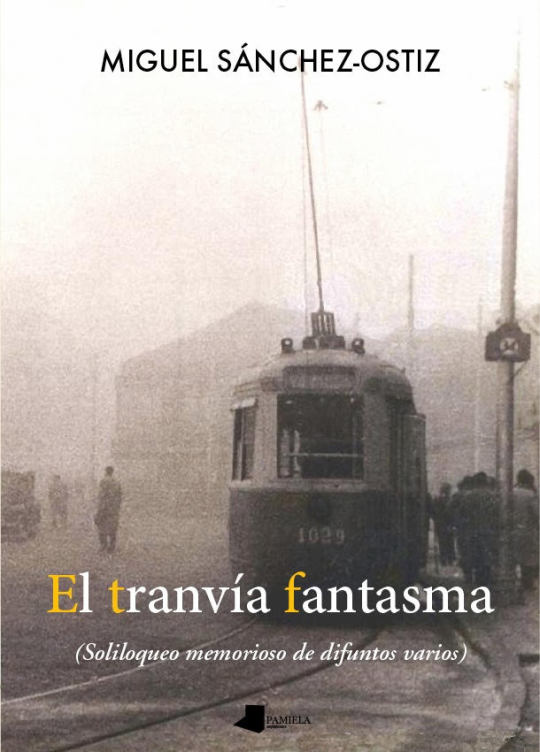
View On WordPress
0 notes